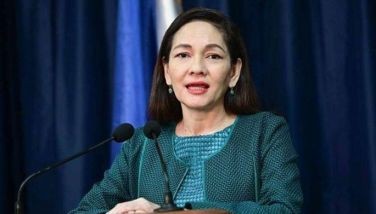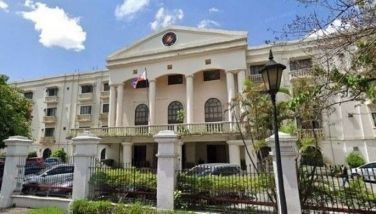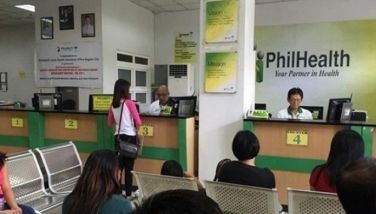Marcos admin looking to expand nursing, medical scholarship programs

MANILA, Philippines — The Marcos administration is looking to expand the nursing and medical scholarship programs to meet the widening demand for health care professionals due to the lingering pandemic.
President Marcos made the pronouncement in a meeting with representatives of the health care cluster of the Private Sector Advisory Council (PSAC) at Malacañang on Thursday.
Although the government cannot prevent nurses from leaving the country for high-paying jobs abroad, Marcos said they must at least serve the nation for a number of years first – that is if they avail themselves of the government scholarship program.
“Everyone is looking for nurses. Everybody that I talk to, especially from the States and from Europe... So the only thing is that the scholarship program, that you know, you can’t hold people back from a better life, from a better living. But I think it’s fair that if you provide scholarships... they will serve for a few years first. The scholarship will not be paid. They don’t need to pay that,” Marcos said during the meeting.
Department of Health officer-in-charge Maria Rosario Vergeire told the President the DOH aims to produce more nurses through the government’s “ladderized” scholarship program.
The agency, she said, had started discussions with the deans of the University of the Philippines and other allied health care services for the scholarship program, although it will take two to three years for it to bear fruit.
Vergeire also said the DOH had initial talks with the Department of Migrant Workers (DMW) for exchange programs with other countries needing health care workers.
“So, in turn, we are going to propose that if we can provide them with the numbers they need, they (would) provide us also, for example, scholarships for a number of our health care workers here,” she pointed out.
Vergeire said that as government scholars, they have to stay in the country for two years before they can seek employment abroad.
She noted that part of the DMW’s plans is to secure deals with the country’s bilateral partners to provide funds for scholarships in the Philippines.
After graduation, the scholars will be required to serve their communities for a certain period before they could seek overseas employment, Vergeire explained.
Marcos had backed the implementation of a ladderized nursing education program to address the brain drain and strengthen the country’s health care sector.
The country has a total of 617,000 licensed nurses, with 28 percent working in both public and private health facilities, or about 172,000, according to DOH data. Fifty-one percent or 316,000 have migrated, while 21 percent are working in areas other than health care, it said.
Meanwhile, the PSAC expressed commitment to support the government in improving the health system, particularly in strengthening the Philippine Health Insurance Corp. (PhilHealth) by providing a third-party assessment that will focus on addressing operational gaps in claims filing, membership application, digitalization and actuarial valuation, among others.
Among those present at the meeting were PSAC strategic convenor Sabin Aboitiz, PSAC health care lead Paolo Maximo Borromeo, Filipino-American molecular biologist and priest Nicanor Austriaco, Metro Pacific Hospital Holdings Inc. CEO Harish Pillai and Unilab president and CEO Clinton Campos Hess.
The private sector also vowed to work with the Food and Drug Administration to upgrade its systems to obtain accreditation with various international regulatory bodies and raise awareness about the value of generic drugs.
They also committed to help in bringing in cheaper medicines and addressing the shortage of nurses.
Marcos raised the need to further strengthen the collaboration between the public and private sectors to improve the country’s health sector.
He directed PhilHealth to check “best practices” and include digitalization initiatives for improving health insurance operations and offering health benefits. – Rhodina Villanueva
- Latest
- Trending





























